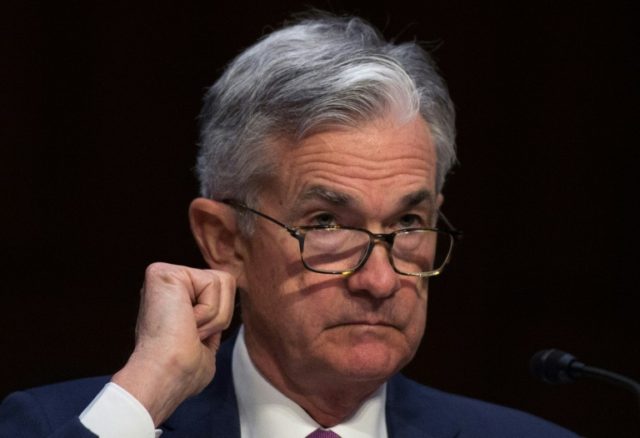Federal Reserve officials worry that a prolonged trade dispute could be a drag on the economy but see little evidence of negative effects so far.
The minutes of the Fed’s last two-day meeting, which were released Wednesday, use the word “trade” 22 times, up from just six in the minutes to the prior meeting. But while the Fed talked about trade a lot more at its meeting, only a few Fed officials reported that negative economic effects had already emerged. Both the Fed staff and its top policymakers were confident that the economy would continue to grow at a fast pace.
“Business contacts in a few Districts reported that uncertainty regarding trade policy had led to some reductions or delays in their investment spending,” according to the minutes. “Nonetheless, a number of participants indicated that most businesses concerned about trade disputes had not yet cut back their capital expenditures or hiring but might do so if trade tensions were not resolved soon. ”
Another indication that the Fed does not see trade disputes weighing heavily on the economy at this point: officials said that if the economy performs in line with expectations, it would “likely soon be appropriate to take another step” in raising rates.
But Fed officials do see a lengthy trade war as a potential drag. According to the minutes, “all participants pointed to ongoing trade disagreements and proposed trade measures as an important source of uncertainty and risks. Participants observed that if a large-scale and prolonged dispute over trade policies developed, there would likely be adverse effects on business sentiment, investment spending, and employment.”
Importantly, however, at least some Fed officials think the bigger risk to the economy is not a trade slowdown but overheating.
“Some participants raised the concern that a prolonged period in which the economy operated beyond potential could give rise to inflationary pressures or to financial imbalances that could eventually trigger an economic downturn,” the minutes note.
Although China’s retaliatory tariffs have been blamed for falling crop prices, the Fed seems less convinced. Although the minutes say that several participants mentioned the adverse effect on farmers from falling prices, only “a couple” said this was likely due in part to trade tensions.

COMMENTS
Please let us know if you're having issues with commenting.